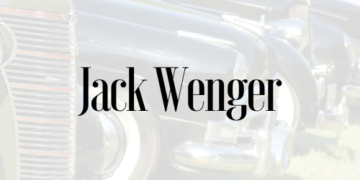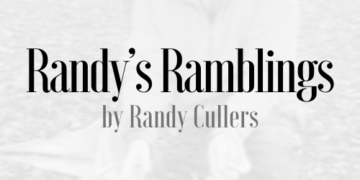A few months ago in this column, I referenced the chapter I wrote in What’s KILLING Your Profitability? (It ALL Boils Down to Leadership!) titled a chapter “The Cost of an Unaccountable Workforce” and shared general thoughts on how being held accountable for our actions – good or bad – impacts the level at which we appreciate what we have as well as how we contribute to society. For years, I’ve heard John Maxwell say that “everything rises and falls on leadership.” To that end, a friend of mine who owns a local company (that’s grown exponentially over the last few years) has a sign on his desk that reads “The buck stops here.”
Before I go on, I need to add that this may be a column you want to skip this month if you don’t subscribe – at least figuratively – to the part of the Book that suggests sparing the rod spoils the child. And if you’re not currently a parent, or you don’t know any parents, you can probably skip it too…

Now for those of you who stuck around, how about a story? When I previously touched on the cost of unaccountability, I mentioned that our son, Matt, liked to push the envelope wherever he could as a kid. If we’re being honest with ourselves though, can’t we all relate to that in some way? In all the years I worked in behavior-based safety, I realized that one constant in human behavior is that we all, in one way or another, tend to push the boundaries. When I’m on the interstate and driving conditions are good, there’s a high likelihood that my cruise control is set at 79mph; knowing that going beyond that would increase the chances of getting pulled over and increase the charge to reckless driving from speeding. While I may not know exactly what boundary you’re most likely to push, I’m confident that there is (at least) one.
With that in mind, let’s circle back to Matt. I’m not allowed enough space in this column (nor do I have time or desire) to hash out each type of punishment he received for going well beyond the established boundaries Cindy and I had set for him. I will share that there was rarely a time where he wasn’t held accountable for his actions, at least the ones we knew about. If I’m being honest, there were a bunch of times where it would have been so much easier to just pretend that we didn’t know about some of his shenanigans; the punishment he received often impacted what we did as a family. And in many cases, it resulted in him being really mad at me. Had I chosen to be his buddy instead of taking responsibility for holding him accountable, I’m certain that we wouldn’t have the relationship we do today – and I have my doubts about whether he’d be the great worker, husband, and dad he is today.
Cindy and I recently took Matt, his wife, and their 16-month-old son to dinner. They were wrapping up a busy day and the little guy was hungry and tired; a tough combination for all of us but especially someone that young. Wyatt got fussy a few times and Matt was quick to address it; firmly, but very lovingly. Wyatt’s response was amazing! At such a young age, he knew his dad was willing to hold him accountable for his actions.
Consider how many times you’ve seen that devil-child in the grocery store, screaming and kicking until they got what they wanted… What are the odds that this was the first time a kid acting that way had done so – and gotten exactly what they wanted? Unlikely, huh? As parents, how much are we serving our kids when we’re willing to hold them accountable – even when it’s painful in the moment – rather than giving them the impression that they won’t be held accountable later in life. Paying the price of accountability at an early age is far better than the cost of unaccountability later on because the stakes will likely be much higher then!































